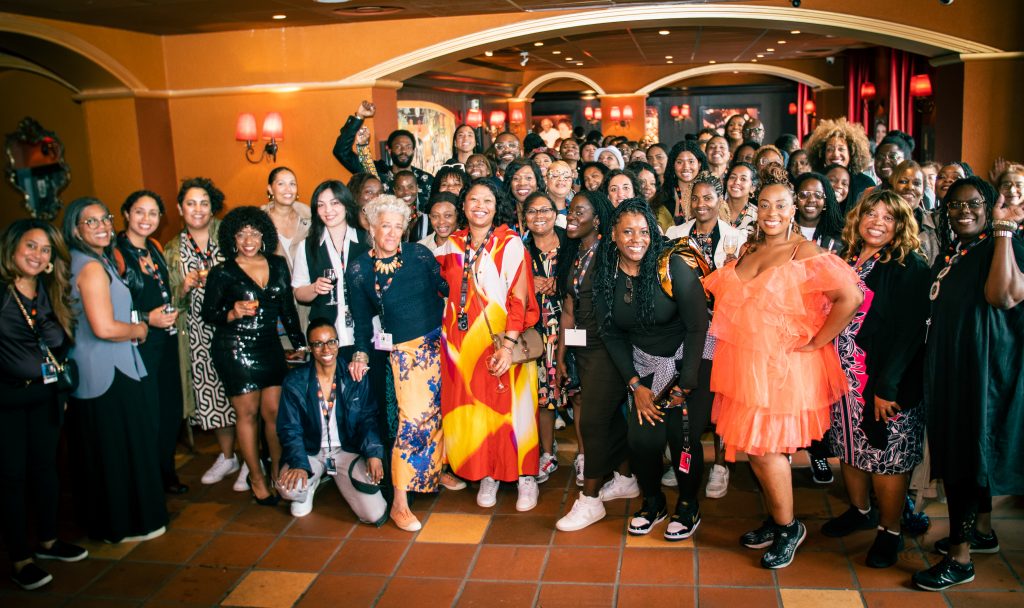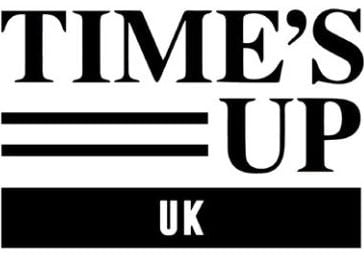about
TIME’S UP UK

TIME’S UP UK is an organisation that insists on safe, fair and dignified work for everyone.

TIME’S UP UK is an organisation that insists on safe, fair and dignified work for everyone. We do this by identifying, creating and implementing significant and impactful interventions for lasting change amplifying the work of our partners and friends, by creative connections and advocacy. Our very first red carpet when we launched back in February 2018 saw us walk with activists to share the stage as we began our campaign against bullying, harassment, and abuse, which has so long been part of the DNA of our industry. From the casting couch to ‘sex sells’, women have been mistreated in front and behind the camera.

Our work from the outset has always been one of collaboration and shared purpose, with allies, women’s organisations, and grass roots campaigns. We have acted as a convenor and partner to join forces with others to shift the dial together. No grand gestures and policy statements, but practical and meaningful intervention to push cultural change. We launched the Justice & Equality Fund in 2018 from a hugely successful crowdfund campaign which raised nearly £3m, to fund projects with one common aim, to bring an end to the culture of sexual harassment, abuse and impunity that exists in the UK by resourcing a network of advice, support, and advocacy organisations. Through the Justice & Equality Fund we were able to set up the UK’s first and only free legal advice line for women who have experienced sexual harassment delivered by Rights of Women, working with Fawcett Society and partners, Chwarae Teg, the Women’s Resource and Development Agency, and Close the Gap, we launched the Tackling Sexual Harassment in the Workplace Toolkit, a free resource to help employers create workplaces where women are safe to report incidents of sexual harassment and support employers to respond appropriately – creating environments where sexual harassment does not happen in the first place and much more.
Alongside this is building on the progress made to date with our partners including supporting Can’t Buy My Silence, a campaign committed to end the misuse of NDAs to buy victims’ silence, ensuring Intimacy Coordinators are becoming commonplace in the creation and craft of intimate content, writing rooms are becoming more reflective of the society in which we live, and the screen sectors’ first ‘Set of Principles and Guidance to Prevent Bullying and Harassment’ created in partnership with BFI and BAFTA has been widely adopted by industry and more. However, there is still a way to go to bring about cultural change where power and access is broadened to become truly and fully diverse and inclusive.
We are now on a journey trying to craft the most significant intervention across the creative industries with our proposal for a Creative Industries Independent Standards Authority, which we are calling CIISA, to drive up standards of behaviour, accountability, and integrity. Whilst we know much has been done to tackle bullying and harassment over the last five years, fear still pervades. Our talented workforce are afraid to raise concerns at the time of a performance or production, still uncertain where to go to seek confidential advice, and crucially, where there are multiple concerns, there is no one single entity able to report them to, who can then assume responsibility. This is the ‘grey space’ where poor behaviour festers and thrives, where individuals suffer in silence, and within which there is no accountability. CIISA will fill this void, this grey space, whose defined purpose is “to uphold and improve standards of behaviour across the creative industries, to prevent and tackle all forms of bullying and harassment, including bullying and harassment of a discriminatory nature.”
As CIISA takes on its own stride and momentum TIME’S UP UK continues to work with others on shifting culture to be more inclusive, more diverse so the centrality of where the prevailing power structures lie, can be changed. One example of this work was in our endeavours to ensure that writing rooms are no longer white and male only, and we have seen some progress on more Black and female writers being commissioned. Not enough, but we are making progress. Alongside this has been our support and advocacy around women directors, again trying to ensure more diversity on sets and that the historic patterns of power are disrupted.
We will continue to raise our voice in these areas but our core focus is now on race and racism. About dismantling a system built over eons of time where whiteness and the perpetuation of misogyny towards Black women is deeply embedded. White fragility and wilful ignorance of Black history have always posed an obstacle as the recently departed Black feminist bell hooks said, “I will not have my life narrowed down. I will not bow down to somebody else’s whim or to someone else’s ignorance.” Unless we are all alive to how race pervades power structures, we will not dismantle exclusion and discrimination.
To be effective we will build on our history of working and talking with others, particularly learning and collaborating with other Black Equity Organisations as we design interventions which lead to sustainable change.
This year we are supporting Black Lives in Music who have launched their ‘One Voice’ against bullying and harassment survey and are calling for musicians and music creators across the UK to take part in this ground-breaking research to eradicate bullying and harassment in the UK music Industry.

We went to Cannes in partnership with British Black List, the BFI and Diversity In Cannes, together with a cohort of UK filmmakers that travelled to the Festival as part of the Black women in film programme, they were Yvonne Ibazebo, Nadine Marsh-Edwards, Kelley Robins Hicks and Shantelle Rochester. The programme included events with Black filmmakers who spoke about their experiences, achievements and perspectives; exploring what it is to be a filmmaker from a historically marginalised background; and to interrogate the importance and value of authentic authorship and how our experiences bring richness to stories.

